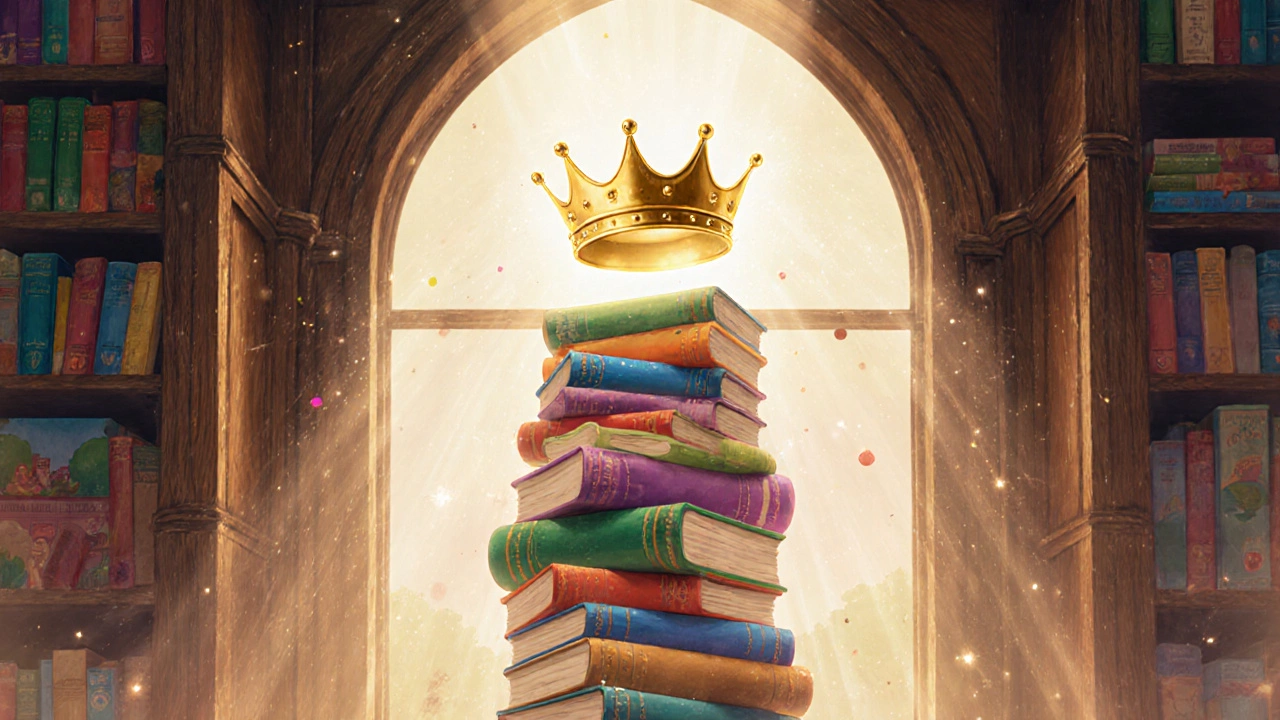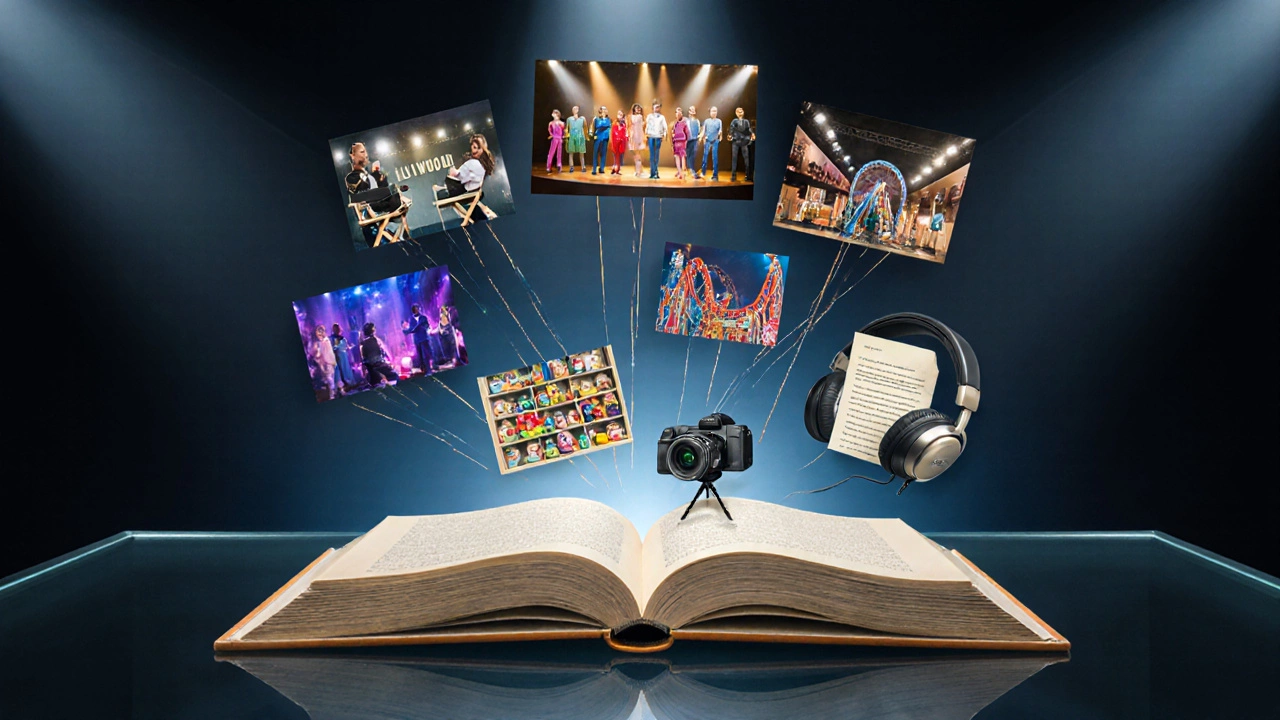
Children's Book Royalty Calculator
Estimate potential earnings for children's authors based on book sales, royalty rates, and additional income streams. This tool demonstrates how different factors impact an author's total income.
Estimated Annual Earnings
Base book earnings: $0
Additional income streams: $0
Total: $0
Note: These are estimated values based on industry data from the article. Actual earnings can vary significantly based on contract terms, market conditions, and individual author success.
Ever wondered which name tops the paycheck chart when it comes to writing for kids? In 2025 the answer isn’t a surprise to industry insiders, but it might still raise eyebrows for casual readers. Below you’ll find the full picture - from the person who holds the crown to the money‑making routes that keep the figures soaring.
Who currently holds the title of highest paid children's author?
As of the latest fiscal reports and publishing‑industry surveys, J.K. Rowling is the clear front‑runner. While she is best known for the Harry Potter saga, the wizarding world has continued to churn out revenue through new spin‑offs, stage productions, streaming deals and a relentless flow of merchandise.
How do children’s authors earn money?
Understanding the cash flow behind the stories helps explain why a few names dominate the leaderboard. Below are the primary income streams:
- Advance payments: Publishers often give a lump sum before a book hits the shelves. Successful authors can negotiate multi‑million‑pound advances.
- Royalty earnings: Once the book earns back its advance, authors receive a percentage of each sale. Typical royalty rates hover between 8‑15% of the retail price for hardcover editions.
- Licensing and merchandising: Characters become brands. Toy lines, clothing, video games and even theme‑park attractions bring in sizable licensing fees.
- Film and television rights: Adaptations can be worth tens of millions. The Harry Potter films earned over $9billion globally, with Rowling pocketing a sizable share.
- Audio and digital formats: Audiobooks, e‑books and subscription‑based platforms provide additional royalty streams, often at higher rates than print.

Top earners in the children’s‑book arena
Below is a snapshot of the five highest‑earning authors based on publicly available data from 2023‑2025. Figures are rounded to the nearest million and reflect combined income from all sources listed above.
| Author | Approx. Annual Earnings (USD) | Total Book Sales (millions) | Main Series / Franchise | Key Licensing / Media Deals |
|---|---|---|---|---|
| J.K. Rowling | 120 M | 500+ | Harry Potter | Warner Bros. film franchise, Universal Studios theme park, multiple merchandise lines |
| Jeff Kinney | 45 M | 250+ | Diary of a Wimpy Kid | Animated film adaptations, global toy contracts, video‑game collaborations |
| Rick Riordan | 38 M | 200+ | Percy Jackson & mythology series | Disney+ series, educational curriculum licensing, action‑figure lines |
| Theodor Seuss Geisel (Dr. Seuss) | 30 M (estate) | 350+ | Dr. Seuss classics | Animated movies, extensive merchandise, theme‑park attractions |
| James Patterson | 28 M (children’s imprint) | 150+ | Middle School series, Maximum Ride (young‑adult crossover) | Film adaptations, international translation rights, toy lines |
What drives such massive earnings?
Three core factors explain why the names above dwarf most of their peers:
- Franchise longevity: A series that spans decades keeps generating sales and licensing renewals. Rowling’s universe has been alive for over 25 years and still expands.
- Cross‑media adaptability: When a story can be turned into a film, TV series, stage play, or video game, each new format opens a fresh revenue channel.
- Strategic publishing partnerships: Working with global powerhouses like Penguin Random House or Disney ensures worldwide distribution and marketing muscle.
Authors who command strong brand identities also attract high‑value deals from toy manufacturers, apparel brands and even theme‑park operators.

How can aspiring writers boost their earning potential?
Even though hitting the multi‑million‑dollar mark is rare, there are concrete steps you can take to make the most of a writing career aimed at kids:
- Build a series early: Readers love continuity. A compelling series encourages repeat purchases and opens the door for bundled sales.
- Focus on adaptable concepts: Think about visual appeal, strong characters and world‑building that translate well to screens or toys.
- Negotiate royalty structures: If you have a strong platform, aim for higher royalty rates on e‑books and audiobooks, which often exceed print rates.
- Partner with a savvy literary agent: Agents with a track record in children’s publishing can secure advances, foreign rights sales and licensing agreements.
- Leverage social media and schools: Direct engagement with young readers and educators builds a grassroots audience that publishers value.
Common pitfalls that sabotage earnings
Many talented writers see their books stall because of avoidable mistakes:
- Over‑reliance on a single market: Limiting yourself to one language or region caps royalty potential.
- Ignoring ancillary rights: Skipping negotiations for film, TV or merchandise leaves money on the table.
- Poor contract terms: Accepting low advances or vague royalty clauses can erode long‑term income.
Staying informed about contract language and seeking professional advice can safeguard your future earnings.
Frequently Asked Questions
Who is the highest paid children’s author right now?
J.K. Rowling leads the pack, earning roughly $120million per year from book sales, film royalties, merchandise and theme‑park deals.
How are royalties calculated for children’s books?
Royalties are typically a percentage of the retail price. Hardcover titles often carry 10‑15%, paperback 8‑12%, while e‑books and audiobooks can fetch 20‑25% because of lower production costs.
Do authors still earn from older books that were published years ago?
Yes. As long as the book stays in print or is sold digitally, the author continues to receive royalties. Estate managers also collect licensing fees for posthumous works, as seen with Dr. Seuss.
What role do publishers play in an author’s earnings?
Publishers front the advance, handle production and marketing, and negotiate foreign‑rights and licensing deals. A strong publisher can significantly boost an author’s reach and, consequently, earnings.
Can a new author realistically reach six‑figure earnings?
While the multi‑million‑dollar tier is rare, a successful debut that lands a solid advance and strong sales can yield six‑figure royalties, especially when combined with foreign‑rights sales.
In short, the earnings crown belongs to J.K. Rowling, but the path to a lucrative career in children’s literature follows clear, repeatable steps. By understanding royalty mechanics, building adaptable franchises and negotiating smart contracts, writers can turn their stories into lasting revenue streams.






